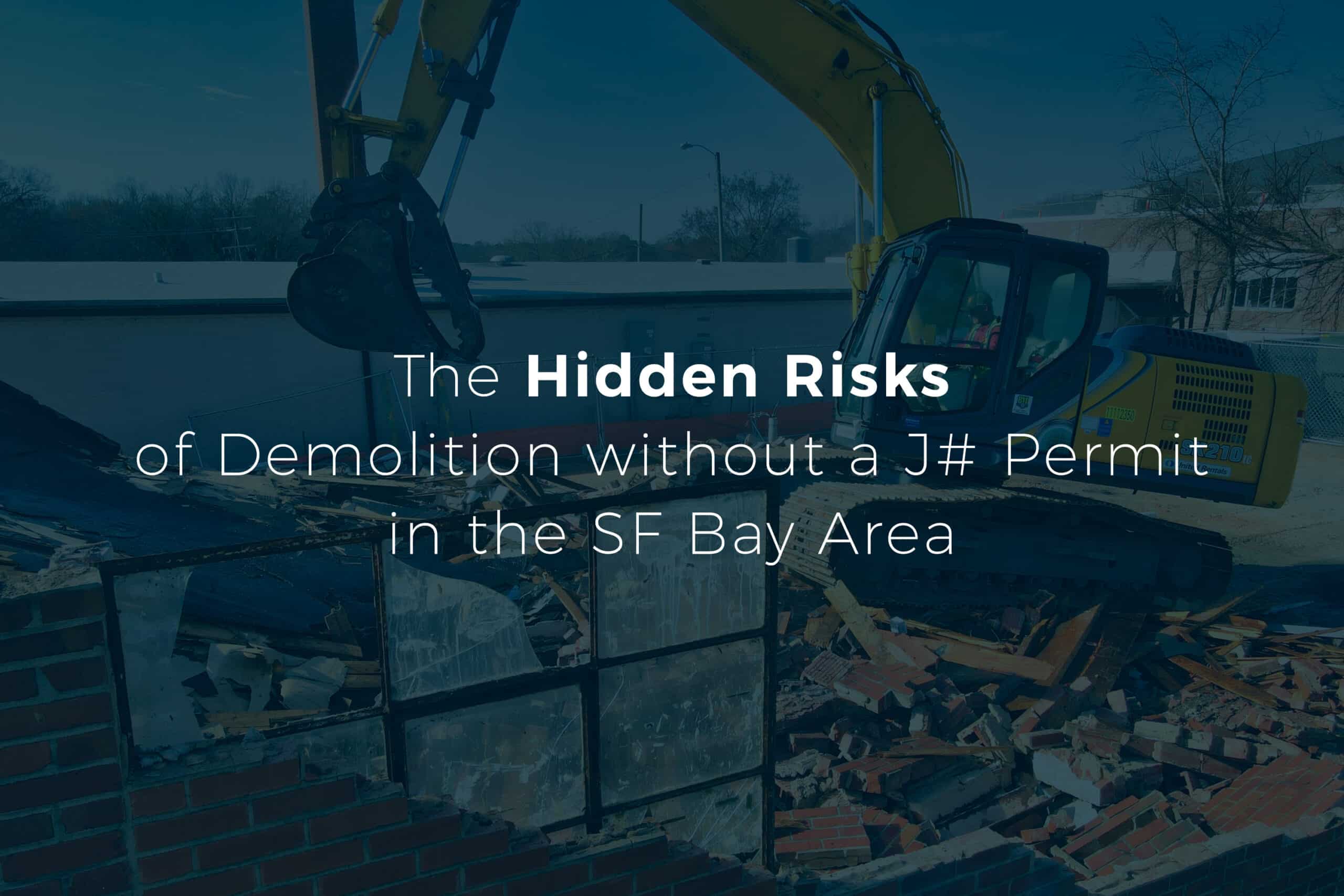
When it comes to demolishing buildings in the Bay Area, it’s not just about tearing down the property. There are local rules and regulations designed to keep everyone safe and protect the environment.
One important rule is that you need to get a J# permit from the Bay Area Air Quality Management District (BAAQMD) before you can do a demolition. BAAQMD oversees and helps regulate stationary sources of air pollution in the nine counties that surround San Francisco Bay.
Not getting the J# permit can lead to numerous problems, including delays to your schedule, costly legal issues and more. In this blog article, we’ll discuss these potential problems, plus explain how Adviro can help by providing asbestos testing to ensure safe demolition practices.
Let’s start by discussing what could go wrong without that J# permit:
1. Air Quality and Health Concerns
Imagine a demolition site with debris and dust flying around. Without a J# permit, there might not be proper measures in place to control these pollutants. Dust and particles—some of which may contain asbestos—can be released during demolition and harm the air we breathe, causing allergies, asthma, and other health issues. It can also lead to soil contamination. And in this case, possibly harm the construction workers and nearby neighbors.
2. Legal Troubles and Fines
Rules are there for a reason, and not following them can lead to legal headaches. Skipping the J# permit means breaking the law. The Bay Area Air Quality Management District requires these permits to prevent unsafe demolitions. If someone goes ahead without the permit, they could face fines and even legal actions.
3. Project Delays and Extra Costs
Imagine starting a demolition project and suddenly having to stop because of missing permits. It’s like hitting a major roadblock in a journey, because without a J# permit the project might have to pause until the right permit is obtained. This can cause delays of weeks or months and cost more money to fix the situation.
4. Community Conflicts
Demolitions don’t just affect the construction site; they can impact the whole community. Noise, dust, and safety concerns can create tensions. With a J# permit, there’s often communication with the community to address worries. Skipping the permit means missing these discussions, leading to unhappy neighbors and community disputes.
How Adviro Can Help
Fortunately, there’s a way to ensure you get a #J Permit so you can do your demolition the right way. Just work with Adviro—as an environmental testing company, we specialize in asbestos testing and can help you get your J# Permit. Asbestos is a hazardous material found in many older buildings built during the 1970s and earlier. Adviro’s asbestos surveyors can take samples and send them out for testing to see if asbestos is present. helping to plan safe removal before demolition. This not only ensures safety for workers but also prevents asbestos from being released into the environment.
Summary
Demolition projects aren’t something that you can just go ahead and do—there’s a lot more that needs to be done before you even start. Getting the J# permit is key. And more importantly, getting an asbestos test is necessary if you want to get the J# permit. Without this permit, your demolition can lead to air pollution, legal troubles, and community conflicts and more.
That’s why it’s important to get help when it comes to getting a J# permit. Take the first step and contact Adviro for the required asbestos testing and surveying of the property. Our asbestos surveys will help you attain the J# Permit required to ensure safe demolitions, protecting everyone’s health and the environment. We’re here to help you be safe and breathe easy.
The Financial Impact of Demolitions Conducted without a J# Permit
In the San Francisco Bay Area, demolitions that have been done without a J# permit have sometimes resulted in less than ideal financial outcomes. Here are a few generalized, real-world examples:
-
Project sites have been completely shut down and fined anywhere from $5,000 to upwards of $100,000
-
The sites have had their demolition delayed anywhere from a few months to several years.
– All waste created from the demolition had to be tested for asbestos–sometimes several times, resulting in more expense
– Delays created a financial strain on families that own the homes -
Lawsuits have happened, in which case brings on the additional costs of hiring a lawyer, expert witnesses and more
-
There is also the cost of opportunity lost, which is the value of your time (and money) that could have been spent on other projects that could have been more profitable.

Recent Comments